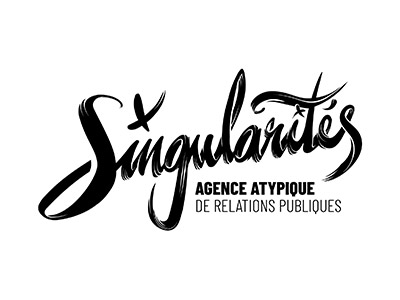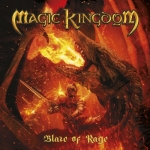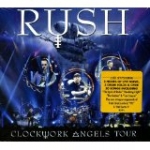Interview
SABATON (2019 - English Version) - Pär Sundström (Bass Guitar)
 It's with a great pleasure we're meeting the nice and kind Pär Sundström in Paris to talk about the new Sabaton's record: The Great War.
It's with a great pleasure we're meeting the nice and kind Pär Sundström in Paris to talk about the new Sabaton's record: The Great War. It seems that you’re keeping the same D.N.A on each new album.
We want our fans to know what they gonna find on each new album, but in the same time we’re also adding new stuff. In the beginning it was only me and Joakim. Nowadays all the band members are involved in the songwriting and it helps the band. We take inspiration from anywhere. Classical music is an inspiration of course even if the band members are not really listening to it oftenly. It’s kind of a tribute to put it in songs.
It’s what you made on the song The Red Baron and Fields Of Verdun
There’s a bit of classical music in the guitar solo as an exemple.
This is not the first time that you put things that are important to you on the songs, as a tribute. On the previous albums you were showing how war were made, with the evolution of the technologies making wars different. What about The Great War ?
World War One (WW1, ndlr) was a turning point in many cases when it comes to warfare. There were so many inventions that changed the warfare and one of the things that was really important to us was to visualize ourselves into it, and to show the brutality of WW1 as close as the can. Luckily I’d never shot anyone and I hope I won’t shot anyone but I can imagine during the war when you see the enemy so far away that you have to check it through the lens, it must be way easier to him hand to hand in the muddy trenches. That feeling was something we wanted to capture on the album and several of the songs are taking place there. During WW1 new inventions were quickly adapted to be able to destroy the enemies. Already at WW2 the planes and tanks were dominating and we will not see the hand to hand fighting. Unfortunately the development was for killing more people.
On a brighter side, you gonna tour to promote this album, playing in festivals too. I saw you several times too. But in festivals you have to convince the audience who doesn’t know you. How will you adapt the setlist with this new music ?
For the next tour that will take us a year and a half or two to travel the world, for the fans we already have and hopefully for the new fans will have as well, we will adapt the stage to fit more into this topic. We’ve already rebuilt all the stuff we gonna carry with us on tour to fit into the topic of WW1. I think that the people will find a very entertaining show and I’m happy we can get that close to our topic in the show with more stuff we can bring to the stage.
You were once a young musician with dreams which came true I guess, When did you realize that was your life and you were giving things to the people that you never imagined before ?
There were a few steps along the way with a band like this. Obviously the whole idea for Sabaton I had when I was a young people before I even start playing any instrument I was enthusiastic about doing things I wanted to do. Like building a house in a tree, a car in Lego, I wanted to do it bigger and more impressive. It was my aim to be number one. So when I saw Heavy Metal for the first time and, then I was playing in a band I instantly had the idea to bring this band to the top level and ever since I’ve never changed of that mission. Since we created Sabaton I had this thing in mind and now the band is 20 years old. And even with all what we made I can understand some things are unachievable, some things must be respected and we must understand what we are and where we go. I can see what the next steps are, but before going to the next step I must stand stable to the step I’m standing. I’m not running through the stairs, I must take step by step. That means I cannot pretend what we are not. If Sabaton is a band playing for 500 people in Paris for exemple I cannot claim we’re a band playing for 5000. We have to live it now but we have to look to the 5000 places and that’s where we gonna be and that’s where we gonna play ! Or even 50 000 !
That’s what is said in The Art Of War. Standing in ground, knowing the truth.
It’s the same show for everything. If you want to succeed you must be aware.
You spoke being in the spotlight and you chose the bass guitar which is not really being into it and which is more the ground.
That’s true. Actually in my first band I was given the bass guitar because guitar, drums and vocals were already taken. I was quite fine with that from the beginning. Seeing the band live on stage, I didn’t wanted to be the guitar player or the singer, or the drummer. I just wanted to be in that band. And I could accept and of those positions. If I could choose I would have been the singer cause I kinda enjoy that… I think . But I’m happy being with the bass guitar as long as I feel good in the band.
You always had a highly recognizable identity on stage. Is it like a uniform in a way ?
Since the beginning of Sabaton I wanted to have a strong identity. One of my favorite band when I was young was Manowar. You can watch a picture of Manowar and see that’s Manowar. You can see a picture of Sabaton and see that is Sabaton. You can listening to the music and know it’s Manowar because of their unique identity. You can hear the same with Sabaton, as well with the lyrics for both bands. A strong identity was necessary for me from the beginning. Something that makes you feel you know what you get, you know what this is. We didn’t have the exact identity from the beginning and it was until the sang the war songs that we found our stage outfit we’re still having today.
You’ just made a campaign to save a museum in England. Is it a way to payback to history ?
Yes. History as given us a lot and the way we can preserve history like that is great. It was something to give back indeed. The canon squad, and it was the only battlefield in England for WW1 and we were searching ideas of what to do like a photo session in this place. And one of the guy who works for us told us « would it be sad if this place disappear ? ». And we felt we wanted to preserve this piece of history and from an unexpected help, now not only they have enough money for the museum to stay open for the new two years but we also refuel the people who voluntarily work for this museum for what they have been doing as long as the band as the museum open in 1999, same a the creation of Sabaton. And they were like it gave them more energy to get back into it. The last year they have been struggling very hard not only to financially keep the museum alive but when they saw there was no interest, no foundation interested about it, they were all by themselves trying to preserve it. It will be very excited to see what they will do with it now. And on the other way we (Sabaton) have so many challenges to come too that we want to make happen
Interview Thomas Enault (recordings and live) & Lionel Reygner (translation / writing)
Critique : Lionel
Vues : 2820 fois








